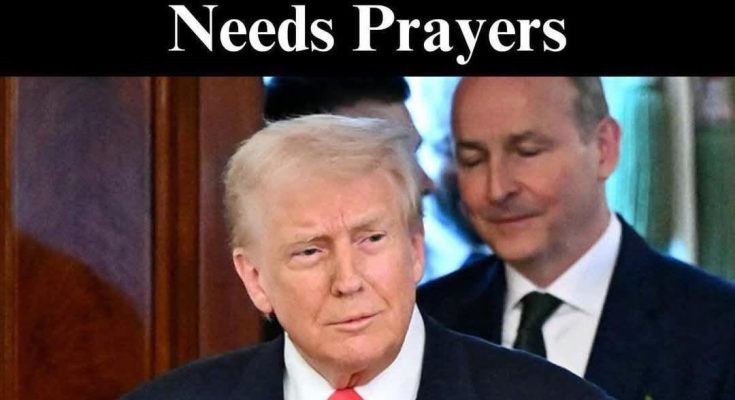Fentanyl Trafficking Declared a National Security Threat by Trump Administration Officials
In a high-stakes address to the Senate Intelligence Committee this week, senior officials from President Donald Trump’s administration issued a stark and urgent warning: the trafficking of fentanyl and other synthetic opioids by foreign drug cartels now represents one of the most significant national security threats facing the United States.
While the opioid epidemic has long been framed as a public health crisis, this new designation elevates it to a matter of national defense—reflecting growing concerns over the escalating death toll and the increasingly organized efforts of transnational criminal networks.
A Crisis Beyond Public Health
Director of National Intelligence Tulsi Gabbard opened the committee hearing with sobering statistics. “Cartels were largely responsible for the deaths of more than 54,000 U.S. citizens from synthetic opioids in the 12-month period ending in October 2024,” she reported. Gabbard made it clear that the scope of the crisis now extends beyond individual tragedies and local communities—it threatens the stability of entire regions and the safety of the nation as a whole.
“Fentanyl is no longer just a drug problem—it is a strategic attack on the American people,” she said. “This is a form of asymmetric warfare, orchestrated by powerful foreign criminal networks that seek to destabilize our society for profit.”
Sophisticated Smuggling and Foreign Involvement
Officials described how Mexican and Chinese-based cartels, working in tandem with other international actors, have developed highly sophisticated smuggling operations. These include custom-built tunnels, the use of encrypted digital communications, and complex global supply chains that span continents.
“Cartels are leveraging technology, exploiting legal loopholes, and partnering with foreign actors who have no interest in our national well-being,” one Homeland Security official testified. These smuggling routes often involve precursor chemicals shipped from overseas—mainly from China—before being processed in clandestine labs in Mexico and then trafficked across the southern U.S. border.
Once in the country, fentanyl is often mixed with other drugs—such as heroin, cocaine, or counterfeit prescription pills—making it especially dangerous and unpredictable for users.
Impact on Emergency Systems and Community Safety
The growing availability and potency of synthetic opioids are having a crippling impact on emergency response systems across the country. Police departments, EMTs, and hospitals are increasingly overwhelmed by the frequency and severity of overdose cases. Some communities report multiple overdoses in a single day, straining limited resources and eroding public safety.
Homeland Security officials noted that the destabilizing effect of fentanyl extends far beyond health statistics. “This crisis weakens community resilience,” one official said. “When children lose parents, when public servants are burned out, when streets are overrun with addiction—it becomes a national vulnerability.”
Congress Urged to Respond with Urgency
In light of these developments, administration officials called on Congress to treat cartel-related activity with the same seriousness as terrorism. Key recommendations included:
-
Expanded border surveillance through drone technology and AI
-
Increased law enforcement funding for anti-cartel operations
-
International cooperation with foreign governments to disrupt supply chains
-
Cyber-monitoring tools to track cartel communications and financial transactions
-
Education and public awareness campaigns to reduce demand
The message was clear: this is no longer just a law enforcement or health issue—it’s a matter of national defense.
Bipartisan Support Grows
The urgency of the situation sparked rare bipartisan consensus among lawmakers. Senators from both parties expressed their support for increased federal action, recognizing the scale and complexity of the threat.
“We are fighting a war on multiple fronts,” said one Republican senator. “This is chemical warfare disguised as drug trafficking.” A Democratic counterpart added, “We need a coordinated federal strategy that prioritizes both prevention and enforcement. Lives are being lost every hour.”
The Road Ahead
With fentanyl-related deaths continuing to rise, and cartels evolving their methods to evade detection, U.S. officials made it clear: this is an evolving threat that requires constant vigilance, innovation, and international collaboration. The administration vowed to intensify efforts in the coming months, and with growing political will, new legislation and funding measures are expected to move swiftly.
Final Thought:
What once seemed like a silent epidemic has now erupted into a clear and present danger. The battle against fentanyl is no longer confined to hospitals and homes—it has reached the halls of national security. Stopping these drug networks isn’t just a matter of saving lives. It’s a mission to defend the nation from an insidious, fast-moving enemy that respects no borders and leaves no community untouched.



